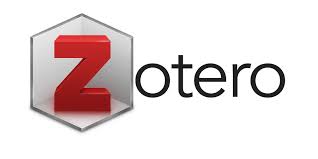Tingkat Adversity Quotient Matematis pada Mahasiswa Program Studi Tadris Matematika IAIN Curup
DOI:
https://doi.org/10.29240/ja.v1i1.826Keywords:
Adversity Quotient (AQ), StudentsAbstract
Downloads
References
Azwar, S. (2015). Penyusunan Skala Psikologi. Yogyakarta: Pustaka Pelajar
Candisa, I. (2006). Mengajar Siswa yang Beragam dengan Aneka Cara. Retrieved from http://www. balipost.co.id
Cando, J. M., & Villacastin, L. (2014). The Relationship Between Adversity Quotient (AQ) and Emotional Quotient (EQ) and Teaching Performance of Collage PE Faculty Members of CIT. International Journal of Scsiences: Basic and Apllied Research (IJSBAR) , 354-367
Cornista, G. A., & Macasaet, C. J. (2013). Adversity Quotient and Achievement Motivation of Selected Third Year and Fourth Year Psychology Student of De La Salle. De La Salle Lipa: The Faculty of the College of Education, Arts, and Sciences
Devakumar, M. (2012). Study of the Adversity Quotient of Secondary Quotient in Relation to Academic Self Concept and Chievement Motivation. Mumbai: University of Mumbai
Efendi, A. (2005). Revolusi Kecerdasan Abad 21: Kritik MI, EI, SQ, AQ, dan Successful Intelligence Atas IQ. Bandung: Alfabeta
Goleman, D. (2000). Emotional Intellegence (Kecerdasan Emosional). Jakarta: PT. Gramedia Pustaka Utama
Jean, M. D., & Luni N, V. (2014). The Relationship Between Adversity Quotient (AQ) and Emotional Quotient (EQ) and Teaching Performance of Collage PE Faculty Members of CIT University. International Journal of Science : Basic and Apllied Research (IJSBAR) 18 , 354-467. Retrieved from http://gssrr.org/index.php? journal=JournalOfBasicAndApplied&page=article&op=download&path%5B%5D=3111&path%5B%5D=2031
Laksomono, H. (2006). Jiwa â€Climber†Pengusaha. Dipetik Februari 22, 2019, dari http://www. paramuslim.com
Ronnie, M. (2006). The Power of Emotional &Adversity Quotient for Teacher. Jakarta: Hikmah (PT Mizan Publika)
Stoltz, P. G. (2007). Adversity Quotient: Mengubah Hambatan Menjadi Peluang. Jakarta: PT Grasindo
Subiyanto, P. (2006). Biarkan Anak Belajar Memilih. Dipetik Februari 22, 2019, dari http://www.bali-travelnews.com
Sudarman. (2012). Adversity Quotient: Kajian Kemungkinan Pengintegrasiannya dalam Pembelajaran Matematika. AKSIOMA , 55-62. Retrieved from https://journal.unnes.ac.id/sju/index.php/ ujmer/article/download/ 12908/7044/
Sugiyono. (2018). Metode Penelitian. Bandung: Alfabeta
Suparno, P. (2004). Teori Intelegensi Ganda dan Aplikasinya di Sekolah. Yogyakarta: Kanisius (Anggota Ikapi)
Downloads
Published
Issue
Section
Citation Check
License
Authors who publish with ARITHMETIC: Academic Journal of Math agree to the following terms:
- Authors retain copyright and grant the journal right of first publication with the work simultaneously licensed under a Creative Commons Attribution-NonCommercial-ShareAlike 4.0 International License (CC BY-NC-SA 4.0) that allows others to share the work with an acknowledgment of the work's authorship and initial publication in this journal.
- Authors are able to enter into separate, additional contractual arrangements for the non-exclusive distribution of the journal's published version of the work (e.g., post it to an institutional repository or publish it in a book), with an acknowledgment of its initial publication in this journal.
- Authors are permitted and encouraged to post their work online (e.g., in institutional repositories or on their website) prior to and during the submission process, as it can lead to productive exchanges, as well as earlier and greater citation of published work (See The Effect of Open Access).








